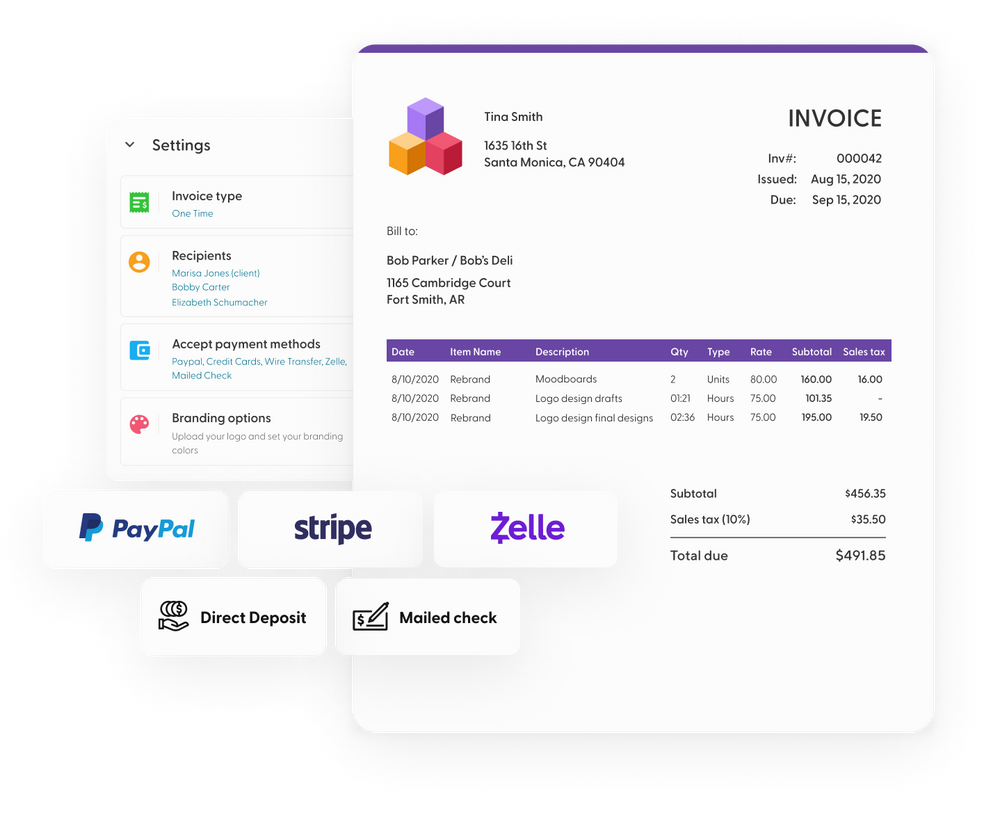Most employees don’t do much in the way of negotiation. You might do general research into your industry to see average salaries and negotiate a bit while accepting your new job. Ultimately, though, your employer has the final say and you can take it or leave it.
It’s no wonder why figuring out a fair rate is such a challenge for new freelance writers when they dive into the self-employment pool, then. I’ll be the first to admit that I accepted way too little money for my first freelance writing job because I thought that was the only way to get my foot in the door.
So what’s a fair rate? First, let’s talk about pricing formats.
Project Rate vs. Hourly Rate: How to Price Freelance Writing
You might be used to hearing hourly rates because that’s common in salaried jobs and many other industries. In freelance writing, though, heed my words: avoid charging per hour. Always charge per word or per project instead based on the amount of work you expect it to take.
If your client wants a 500-word blog, they don’t care if it takes you half an hour or three hours. They care about the finished product: 500 well-researched, engaging words. In addition, hourly rates will hurt you over time. You’ll become a faster writer with experience, and that should benefit you financially. With an hourly rate, if you go from two hours to one hour for a 500-word blog, you’re charging less for the same work even though your skills are improving.
Keep in mind some freelance writers offer other services too which could make sense for an hourly rate. For example, for social media management, charging hourly could make sense because the more time you spend, the more you’re engaging with followers. Feel free to have different pricing structures for different services you offer.
What Are Other Writers Charging?
When I started freelancing, I tried looking up the average pricing among other writers. It turns out the word “average” is used loosely. There are huge amounts of variation based on each writer’s experience level, location, niche, and other factors.
Still, some general data can help. Let’s stick with this 500-word article as our example. In one study of freelance writers, most charged between $50-$99 or $151-$300 for a 500-word blog. For 500-word articles, most writers charged $100 or less. Many writers were charging dramatically more, too.
If you look at word count pricing, there’s extreme variation there as well. You’ll see anything from $.03 per word to $1 per word. It comes down to each writer’s experience level, niche, industry, content type, and more.
Pricing Your Freelance Projects
Now let’s get into hard numbers. Setting your own rates is a matter of simple calculation.
Decide How Much You Want to Make
Start by deciding how much you want to make per hour (ah, “deciding how much you want to make,” the beauty of freelancing!). For the sake of this example, maybe you want to make $50 per hour after expenses.
Consider Your Productivity
Everyone writes at their own pace, so be honest with yourself: how many words can you write in an hour? Maybe it takes an hour to write 500 words for blog posts. That includes all the research and editing for those 500 words. If you’re not sure about your pacing, use a time tracker to time each project.
In this case, you’d charge $.10/word to make $50 per hour. That’s not your final pricing, that’s the starting point.
Weigh Your Time Balance
Next, remember not all your time will go toward writing. Factor in the time spent on operating the business side of freelancing too, like finding new clients, invoicing, keeping records, and so on.
Determine how many hours a week you spend on business operations, percentage-wise. In a full time 40-hour week, for example, maybe you spend four hours on those operations. That’s 10% of the week, so add 10% to your per-word rate. That takes us from $.10 to $.11.
Add Your Expenses
Third, build all expenses into that rate including taxes. Remember, freelancers pay self-employment tax in addition to income taxes. It’s best to set aside 25-30% of your income for taxes. Personally, I set aside 30% because the possibility of owing the IRS money terrifies me.
Add in any other self-employment expenses based on their percentage of your income. Perhaps health insurance costs 10% per month and you rent a coworking space for 3% of your monthly income.
All this adds up to 43%, so add 43% to that hourly rate. $.11 per word now becomes $.16 per word if we round up. This is your rate for blog posts.
Adjusting Pricing for Each Project
Keep in mind those calculations may differ based on the type of content you’re writing. For pieces that are hard to write like those that require more in-depth research or more precise editing stipulations, 500 words could take two hours instead of one hour. Charge higher rates in those cases. Otherwise, you might accidentally end up making $30 per hour instead of $50.
That’s why most writers don’t have a flat fee for blog posts or other types of content. It varies by subject matter, how difficult the client is to work with, and so on. Calculate the project pricing on a per-project basis. The ability to gauge a project’s difficulty in advance is a skill you’ll develop over time.
The Ups and Downs of Choosing Your Income’
Freelancing offers the tremendous freedom to choose how much to charge for your writing services but figuring out those magic numbers isn’t easy. It’s even more difficult considering that there are “content farms” paying $.02 per word so some writers think that’s what they should expect, but you can’t run a freelancing writing business at those rates.
Instead, use the guidance and calculations above to set yourself up for a healthy rate.



